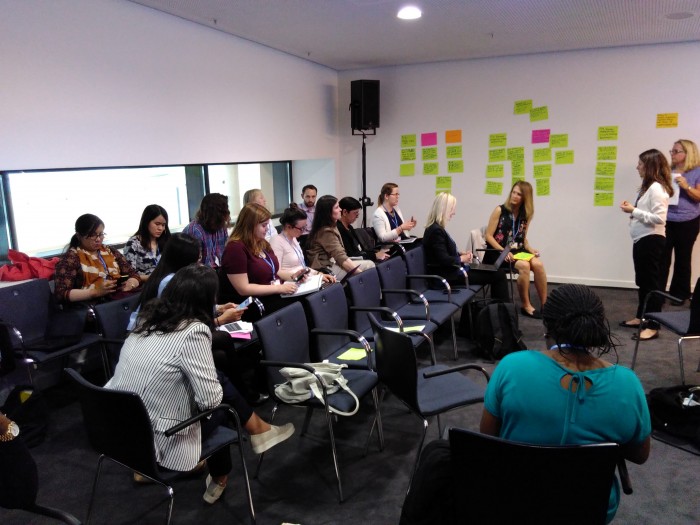
We are four days into the negotiations in Bonn and the spirit is high. Not only are the chestnuts in the city in full bloom, but constructive discussions on many of the topics under the Paris agreement are underway, including the crucial topic of how to enhance the implementation of gender related mandates and decisions under the Paris agreement and the climate convention. A UNFCC workshop on how to develop a Gender Action Plan has taken place over the past two days here in Bonn, and several ACT Alliance members have taken part. Together with country delegations, UN agencies officials and other CSOs we havecollectively been working on priority areas and key activities that the gender action plan should include.
As ACT Alliance, we believe that any strategy or plan devised to address climate change must be gender-responsive and include the guiding principles of justice, equality, solidarity, sufficiency and sustainability. It must have the rights, needs and interests of people – particularly those who live under the most vulnerable conditions – as a point of departure.
In our vision of a climate resilient society, women and men have equal access to power and resources and equal opportunity to participate in decision making linked to development and climate adaptation, from the local level to UN climate negotiations. The competence and experience of both women and men contribute equally to shaping climate and development interventions, to ensure that these meet everyone’s basic needs and strategic interests. In a climate resilient society, vulnerability is not a matter of sex or linked to gender roles.
In order to find the best solutions to the climate challenges at hand, the perspectives and experiences of all people and groups are crucial. But as women have relatively less influence over planning and decision making in most societies, their views and ideas are not put to the use that they could be.
One of the main challenges we are already facing is how to make sure the gender responsiveness approach is embedded in the policies at the national and local levels. In order to really start thinking about transformational change we need to bring new perspectives into all the different arenas where solutions for the future are crafted. We must not forget how important is to also include indigenous women and those living in the most vulnerable areas.
At the current session in Bonn, the UNFCCC has organised the workshop to convene parties and observers to share ideas on how to address this issue practically within the framework of the international negotiations. We have discussed how to improve capacity of all responsible actors, how to increase women’s representation and active participation in the negotiations, how to coordinate activities under the many different topics of the negotiations as well as with other UN processes, how to make sure that finance and technology work for both women and men and how all of this should be followed up.
The Gender Action Plan will be drafted by the UNFCCC secretariat in the coming months and then negotiated by Parties at COP23. Our hope is that it will contain concrete and achievable targets and that it will be accepted and adopted by all Parties so that we will see strong action to improve gender equality over the coming years.
___________
The blog was written by Anna Axelsson from Diakonia Sweden and Sagrario Monedero Lopez, Inspiracción